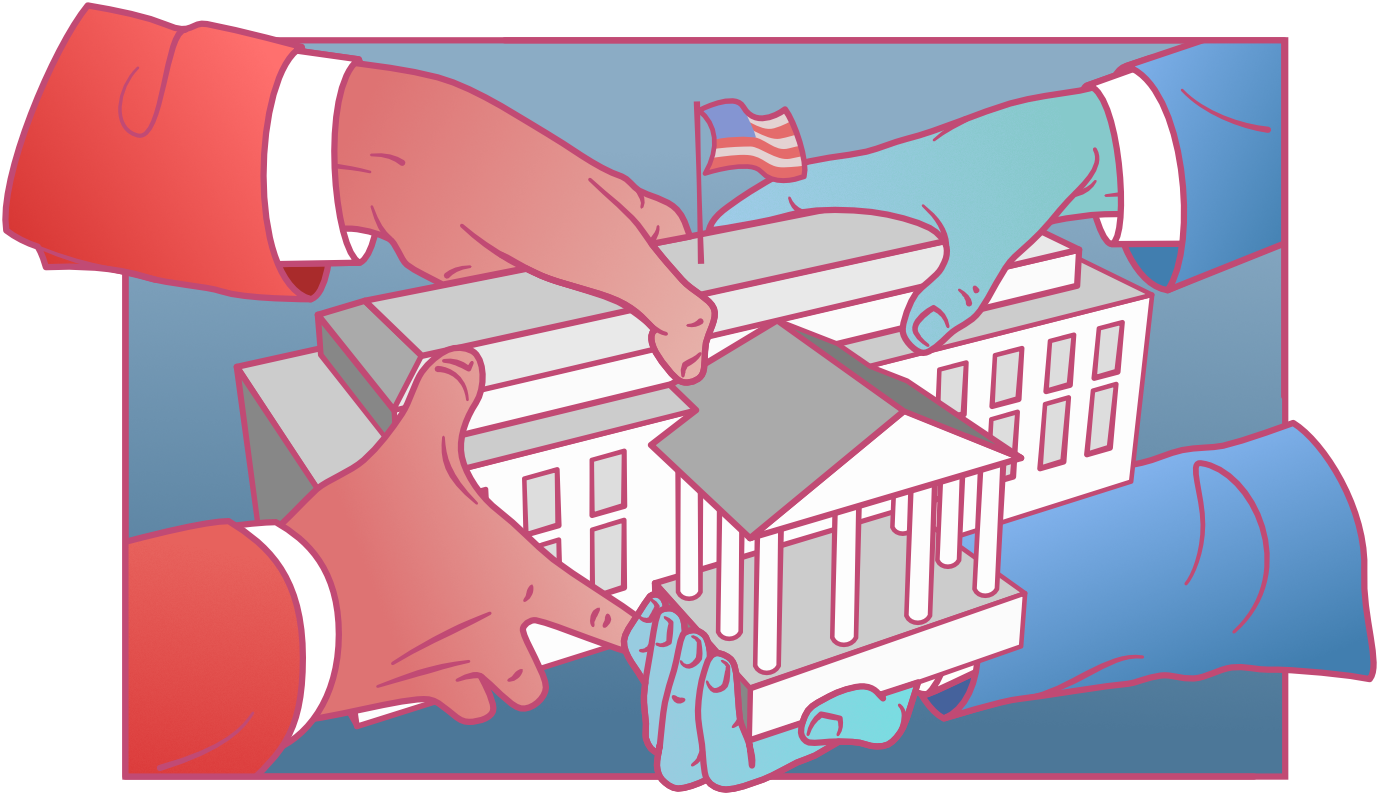Political science professors weigh in on presidential election

By Ryan Leou
Oct. 19, 2016 11:45 p.m.
This post was updated on Oct. 20 at 4:50 p.m.
Hillary Clinton and Donald Trump finished their last debate Wednesday, marking 20 days to go before the country elects its next president.
Though the presidential race has captured much of the public’s attention, races for the House of Representatives, Senate and the future composition of the Republican party are all still at stake.
UCLA political science professors and experts weighed in on the effects the presidential race could have on Congress and the potential dynamic between Congress and the White House after the next president takes power.
[Related: Experts predict Clinton win during Hammer Museum lecture]
Mark Peterson, a political science professor and chair of the Department of Public Policy, whose research focuses on interactions between the president, Congress and interest groups, said the 2016 election is unlike previous ones. He said he thinks if the election had not been between Trump and Clinton, Republicans would have been expected to win the White House and keep control of Congress.
“Given the current distribution of voters and some effective gerrymandering, Republicans have a much larger majority in the House of Representatives than their (national) popular vote share,” Peterson said. “That’s unlikely to change this time.”
He added that he thinks, historically, the president’s party has had a hard time holding on to the White House for a third term. If Clinton is elected, she would be the first president since George H.W. Bush to succeed a two-term president from his or her own party, and the first Democratic president to do so since Franklin Roosevelt in 1940.
Peterson also said that Clinton might not be able to claim popular support for her policies because part of her support comes from Republicans who dislike Trump’s rhetoric or policies.
“(Trump) may drive a dynamic where the Senate flips to Democrats and the House might flip too,” Peterson said. “If she gets in enough votes, those to her left and her supporters might say ‘go for it.'”
Peterson also said he thinks if Republicans lose seats in the House, moderates willing to compromise will lose, potentially setting up conflict between House leaders and conservative representatives who refuse to make deals.
“Speaker (Paul) Ryan will be dealing with the most antagonistic part of party,” Peterson said. “His issue is also how to deal with a Democratic president and find common ground. Will his party let him do that?”
John Zaller, political science professor and expert on party nominations, said he thinks that, despite Trump’s success, this year’s election doesn’t stand out too much.
“Because this is a big, diverse country and parties have to contain the different things people want, (this election) doesn’t stand out,” Zaller said. “It’s just part of the cycle, a cyclical event like a recession.”
Zaller added he thinks leaders of both parties were surprised by Trump’s success as an outsider and will try to control resources to prevent other outsiders from winning in the future. However, they might not be successful, he said.
He continued he thinks parties should be thought of as coalitions of voters with different interests and active elites.
“The Republican party is at a low state of internal disagreement, which is typical of what happens from time to time,” Zaller said. “This gives reason to suspect they will have difficulty agreeing on a candidate in 2020.”
Chris Tausanovitch, a political science professor who studies political decision making, said he thinks Republicans will still have to win the support of people who voted for Trump if they want to win future elections.
“Many moderate voters expected their candidates to condemn things Trump has said,” Tausanovitch said. “However, if legislators were to write off votes from Trump supporters, they might not win elections. They do their best to have fellow Republicans believe what they would like to believe, rather than ostracizing the party by being for or against Trump.”
He also said he thinks the Republican Party could change in several ways. Republicans could either keep policies that existed before Trump’s candidacy and adopt some of his rhetoric, or take some of his policies, like border security and opposition to free trade agreements.
[Related: Chris Campbell: Trump’s success is the result of Republican irresponsibility]
“Republicans will have to portray themselves as more conservative, potentially more isolationist,” Tausanovitch said. “It won’t be a good thing for electing Republicans, because while voters might know little about their candidates, they can say something about the position or brands of the two parties.”
Tausanovitch said he thinks if Trump had not entered the race, no other candidate would have presented his set of policy views. He added he thinks Trump still has the potential to affect the issues.
“Someone might take up the mantle of his issues and define people with respect to attitudes that haven’t been central to (past) campaigns,” Tausanovitch said. “If voters maintain those identities, events might force legislators to take stands on those issues. This campaign could have lasting impact on incentives (for decision making) of those (lawmakers).”
Contributing reports by Pablo Muñoz, Daily Bruin contributor
Click the banner to read more election endorsements and analysis.



